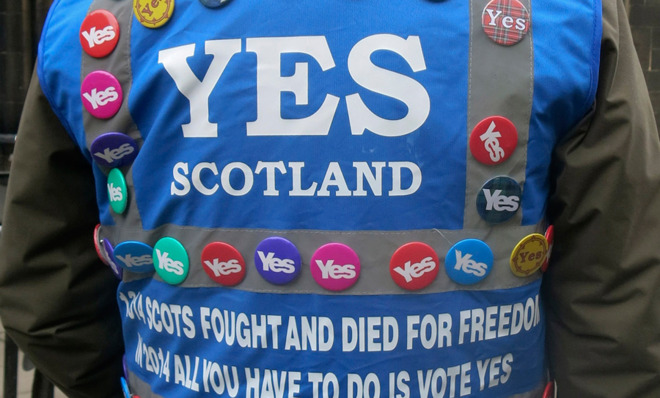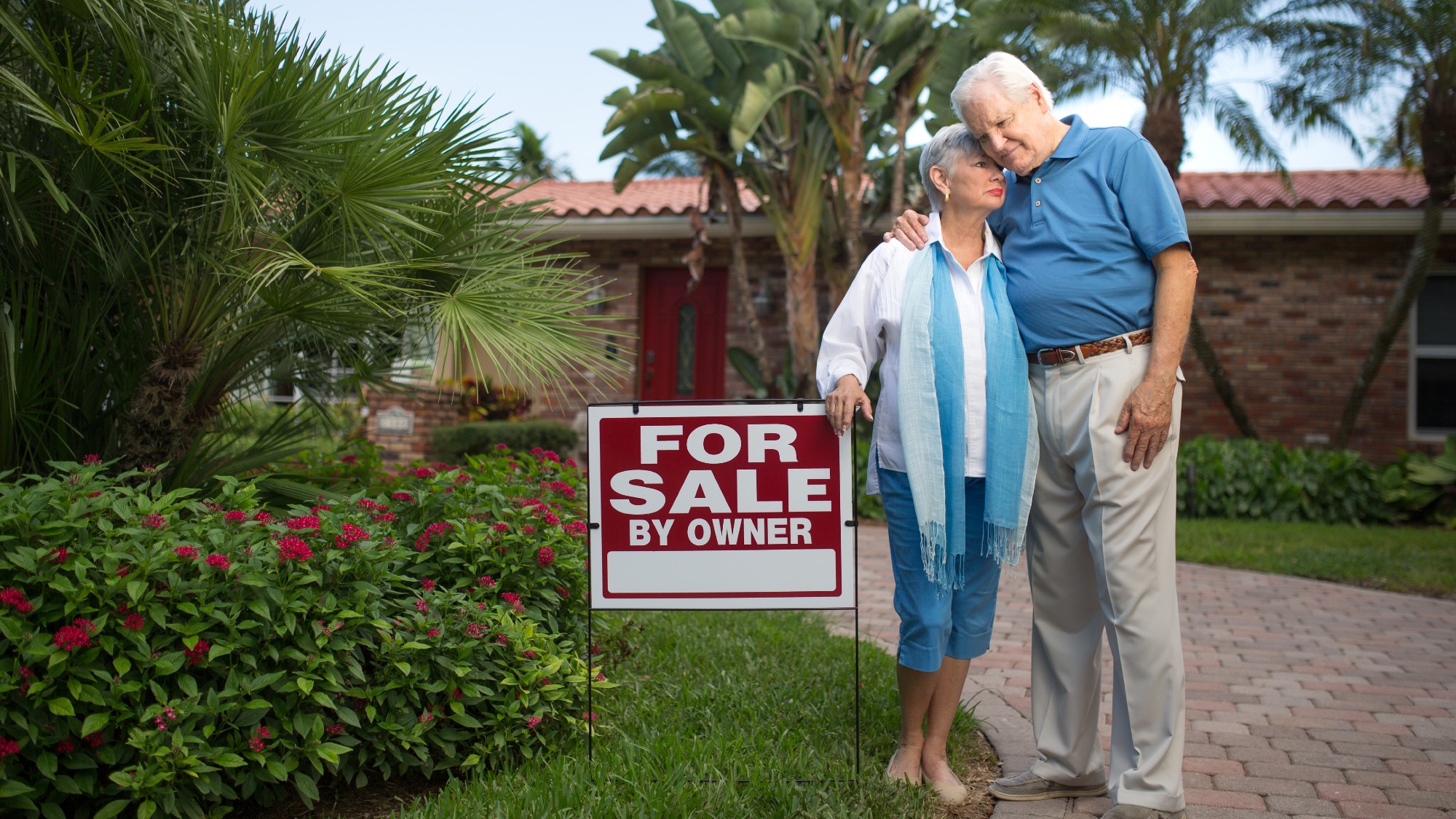Everything you need to know about Scotland's independence push
Scotland will soon vote on whether to become an independent country. Is Great Britain about to get smaller?

What is this referendum about?
On Sept. 18, Scots will be asked to say yes or no to a simple question: "Should Scotland be an independent country?" If a majority back independence, Scotland would exit its centuries-old political union with England, Wales, and Northern Ireland, taking with it nearly 10 percent of the United Kingdom's population and one third of its landmass. The pro-independence campaign, led by the left-leaning Scottish National Party, says the referendum offers a "once in a generation" opportunity for Scots to break free from the British Parliament, which the SNP contends is indifferent to Scotland. "[A yes vote is] a vote for a government in Scotland that the people of Scotland choose, pursuing policies the people of Scotland support," said SNP leader Alex Salmond, the first minister of Scotland's semiautonomous Parliament. But pro-union campaigners warn that a tiny, independent Scotland — there are 5.3 million Scots in a U.K. population of 63 million — would struggle in a global economy dominated by the U.S., China, and other populous nations. "The plain fact is," said British Prime Minister David Cameron, "we matter more in the world together."
How long has Scotland been seeking independence?
The Week
Escape your echo chamber. Get the facts behind the news, plus analysis from multiple perspectives.

Sign up for The Week's Free Newsletters
From our morning news briefing to a weekly Good News Newsletter, get the best of The Week delivered directly to your inbox.
From our morning news briefing to a weekly Good News Newsletter, get the best of The Week delivered directly to your inbox.
Some Scots have wanted to go it alone ever since their country signed the 1707 Act of Union with England, which centralized political power in London's Parliament. Poet Robert Burns condemned the act's Scottish signatories as being "bought and sold for English gold," saying they had betrayed the legacy of national heroes William Wallace and Robert the Bruce, who fought English domination in the 1300s. But Scotland thrived as part of Great Britain. Scottish soldiers, engineers, and merchants played leading roles in building the British Empire, and Edinburgh and Glasgow became global centers of finance and industry. Yet Scottish nationalism never went away, and the country was eventually granted its own semiautonomous Parliament in Edinburgh in 1999. In 2011, anger at the London-based government's austerity measures helped the once-marginal SNP win a majority in the Scottish legislature. The SNP then called a referendum on independence.
What happens if it's approved?
Scotland would become a separate constitutional monarchy, much like Britain is now, with the Parliament in Edinburgh headed by a first minister. (Queen Elizabeth II would remain its ceremonial head of state.) The SNP has said it wants to emulate Norway's model of social democracy, using tax revenue from North Sea oil and gas — all of which currently goes to London before being redispersed to the regions — to pay for a strong welfare state, including free university tuition and universal child care. But pro-unionists note that the North Sea's richest energy reserves have already been tapped, and that production has been falling by about 6 percent a year for the past decade. To address the deficit caused by plummeting oil revenues, Scotland would need to raise taxes or cut spending by $10 billion soon after independence, according to the nonpartisan Institute for Fiscal Studies. Unionists contend that many other promises made by the independence campaign are also far from guaranteed.
What promises?
A free daily email with the biggest news stories of the day – and the best features from TheWeek.com
The SNP has maintained that Scotland would keep the British pound and that the Bank of England would remain the lender of last resort after independence. But Britain's three main national political parties all insist that is not a workable solution. They say that the problems experienced by the 18-nation euro zone illustrate the dangers of a common currency without political union, and that English, Welsh, and Northern Irish taxpayers would balk at a plan that required them to bail out a foreign Scottish bank. "The SNP are asking for a divorce," said Labor Party politician Johann Lamont, "but they want to keep the joint bank account." SNP leaders insist that the currency warnings are just scare tactics.
Would Scotland stay in the EU?
That's not clear. The SNP has said that, because Scotland would be seceding from an existing EU state, it should gain automatic membership in the 28-member trading bloc. But José Manuel Barroso, the European Commission president, said it would be "extremely difficult, if not impossible," for Scotland to join the EU because it would require the unanimous approval of other member states. Spain, which is trying to discourage its Catalonia region from pursuing its own independence, refused to recognize Kosovo after it split from Serbia for that reason, and might also block an independent Scotland's bid to join the EU.
What do voters think?
A recent poll found that 41 percent of voters oppose independence, while 29 percent are in favor, and 30 percent are undecided. But the pro-independence campaign is fast gaining momentum; the gap between the two groups has narrowed by 7 percentage points since September. Among young people in particular, a nationalist enthusiasm for an independent Scotland is rising. Businessman Alan Macfarlane, a donor to the anti-independence campaign, admits to being worried. "'I'm passionately committed to the status quo' is not an obvious rallying cry," he said.
The nuclear question
If Britain loses Scotland, it will have to start looking for a new home for its nuclear arsenal. The U.K.'s fleet of nuclear submarines is based in Faslane, a port on Scotland's west coast. But the SNP, which calls nuclear weapons an "affront to basic decency," has promised to make the country a nuke-free zone by 2020. That pledge has panicked Western security officials, with former NATO Secretary General George Robertson saying the U.K. could be forced into unilateral nuclear disarmament, because there are no suitable sub bases outside Scotland. Citing the threat of an increasingly aggressive Russia, he said Scottish independence would leave behind "a much diminished country," robbing "the West of a serious partner just when solidity and cool nerves are going to be vital." The SNP's Salmond, however, insists that small nations like Scotland simply don't need nukes. "Countries can exercise influence through the scale of their ambition and the strength of their ideas," he said, "rather than the size of their armies."
-
 Should you downsize for retirement? Here's what to consider.
Should you downsize for retirement? Here's what to consider.The Explainer Moving to a smaller place may seem easier, but there are also some real benefits to staying put
-
 What to do if you want to move but don't want to give up your low mortgage rate
What to do if you want to move but don't want to give up your low mortgage ratethe explainer 30-year mortgage rates are currently averaging 7% — and homeowners who secured rates closer to 3% during the pandemic are reluctant to sell their homes
-
 Sudoku medium: September 1, 2025
Sudoku medium: September 1, 2025The Week's daily medium sudoku puzzle